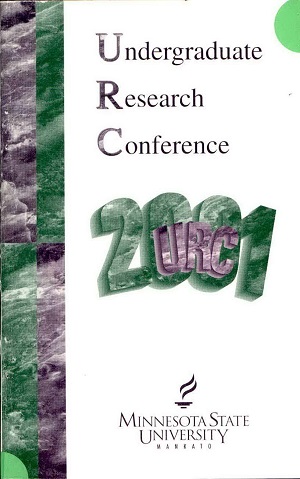Refugee and Immigrant Transition from the Female Perspective
Location
CSU
Student's Major
Anthropology
Student's College
Social and Behavioral Sciences
Mentor's Name
Winifred Mitchell
Mentor's Department
Anthropology
Mentor's College
Social and Behavioral Sciences
Description
The experience of immigrating to the United States is one that is full of challenges and frustrations. That experience can be especially difficult if one is also a refugee. This paper will share and explore the experiences of immigrant and refugee women and their transition to American life and culture. There are several local populations of refugees in the Mankato area, and these populations are growing larger all the time. The information shared will be gathered from interviews with local Somali women. The interviews include such information as the telling of their experiences during the immigration process, and how these experiences affected them in their respective stage of life (daughter, mother, wife, grandmother, etc). The interviews also explore how the refugee experience shaped the women's expectations of themselves, and how they adapted with their traditional cultural values to their new circumstances.
Refugee and Immigrant Transition from the Female Perspective
CSU
The experience of immigrating to the United States is one that is full of challenges and frustrations. That experience can be especially difficult if one is also a refugee. This paper will share and explore the experiences of immigrant and refugee women and their transition to American life and culture. There are several local populations of refugees in the Mankato area, and these populations are growing larger all the time. The information shared will be gathered from interviews with local Somali women. The interviews include such information as the telling of their experiences during the immigration process, and how these experiences affected them in their respective stage of life (daughter, mother, wife, grandmother, etc). The interviews also explore how the refugee experience shaped the women's expectations of themselves, and how they adapted with their traditional cultural values to their new circumstances.




